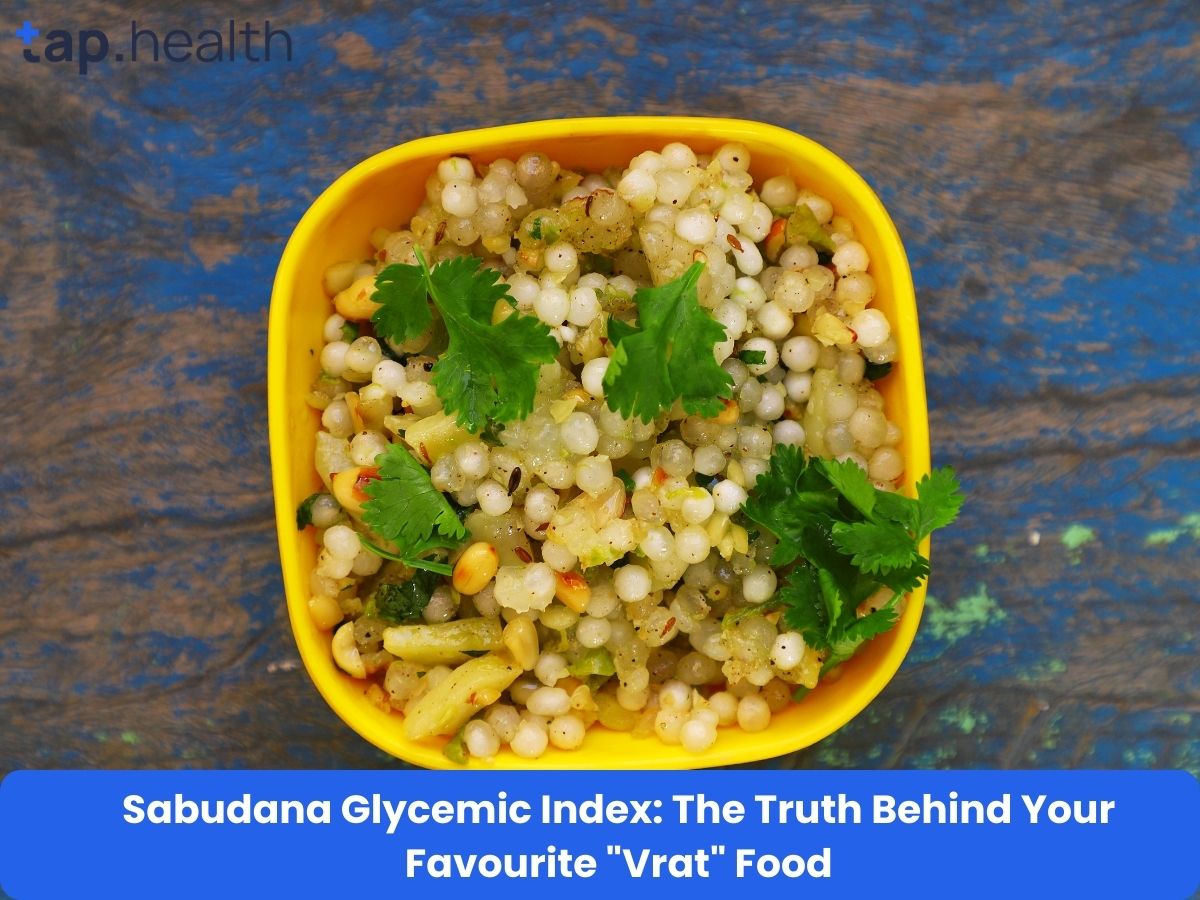Losing weight in a healthy and sustainable way is all about creating the right balance between caloric intake and nutrient density. For those looking to lose fat gradually without feeling deprived, a 1400-calorie diet can be the perfect solution. It offers a moderate caloric deficit, allowing for slow fat loss while still providing the body with the necessary nutrients to stay energized, nourished, and healthy.
The 1400-calorie Indian diet plan focuses on traditional, nutrient-rich foods, making it a great option for those who want to lose weight while enjoying familiar and satisfying meals. In this detailed guide, we’ll explore the benefits of a 1400-calorie diet, provide a comprehensive meal plan, and answer common questions to ensure you can stick to the plan effectively.
What is a 1400-Calorie Diet?
A 1400-calorie diet involves consuming 1400 calories per day. It creates a moderate caloric deficit, where you consume fewer calories than your body needs to maintain its current weight, leading to gradual fat loss over time. While this calorie limit is relatively low, it is still enough to meet the nutritional needs of most adults, especially when the diet is properly balanced with proteins, healthy fats, carbohydrates, and essential micronutrients.
This diet is ideal for individuals looking to lose weight in a sustainable, gradual manner, as it offers a gentler approach compared to extreme calorie-restricted diets.
How Does the 1400-Calorie Diet Work for Slow Fat Loss?
The 1400-calorie diet works by placing your body in a caloric deficit, which means consuming fewer calories than your body burns. As a result, the body begins to use its stored fat as energy, leading to fat loss. However, since the calorie deficit is not extreme, the process is gradual, allowing the body to maintain muscle mass, energy levels, and overall well-being during the weight loss process.
Key Points:
- Gradual Fat Loss: By consuming 1400 calories, you create a moderate deficit that results in slow, sustainable fat loss (approximately 0.5-1 kg per week).
- Muscle Preservation: A moderate calorie intake helps preserve muscle mass, which is important for maintaining metabolism and overall health.
- Energy Levels: This calorie intake ensures that you have enough energy for daily activities and exercise while still losing weight.
Why Choose a 1400-Calorie Diet for Slow Fat Loss?
A 1400-calorie diet strikes the right balance between creating a calorie deficit and still providing enough fuel for your body’s needs. Here’s why it’s perfect for slow fat loss:
1. Sustainable Weight Loss
This diet promotes steady, sustainable weight loss, which is ideal for those who want to maintain their weight loss over time. Losing weight too quickly can lead to muscle loss, fatigue, and a higher likelihood of regaining the lost weight.
2. Balanced Nutrition
A 1400-calorie diet can be balanced with whole, nutrient-dense foods to ensure you get sufficient vitamins, minerals, fiber, and macronutrients. This prevents nutrient deficiencies while keeping you satisfied.
3. No Deprivation
Unlike very low-calorie diets, this approach provides you with enough food to prevent feelings of deprivation and hunger. It allows you to enjoy balanced meals while still losing weight.
4. Improved Health Parameters
By incorporating healthy fats, lean proteins, and fiber-rich foods, the 1400-calorie Indian diet supports blood sugar regulation, cholesterol management, and overall heart health.
Key Nutrients to Focus on in a 1400-Calorie Indian Diet
For a 1400-calorie Indian diet plan, it’s important to include a variety of nutrient-dense foods to ensure that you’re not only losing fat but also maintaining your health throughout the process. Here are the key nutrients you should focus on:
1. Protein:
Protein helps with muscle maintenance and keeps you feeling full for longer periods. Include:
- Dal (lentils)
- Chickpeas
- Paneer
- Tofu
- Greek yogurt
- Quinoa
2. Healthy Fats:
Healthy fats are crucial for maintaining brain function and hormonal balance. Good sources include:
- Olive oil
- Avocados
- Nuts (almonds, walnuts)
- Flaxseeds and chia seeds
3. Carbohydrates:
Carbohydrates provide energy. Opt for complex carbs that are high in fiber:
- Whole grains like brown rice, millets, quinoa
- Sweet potatoes
- Oats
- Vegetables (spinach, cauliflower, bell peppers)
4. Fiber:
Fiber helps with digestion and keeps you feeling full. Include:
- Leafy greens
- Vegetables (broccoli, carrots)
- Whole grains
- Fruits (apples, guavas)
1400-Calorie Indian Diet Plan for Slow Fat Loss
Here’s a 1400-calorie Indian meal plan designed to provide the right balance of nutrients while ensuring you stay within the calorie limit. The plan includes Indian vegetarian foods, which are rich in fiber, protein, and healthy fats.
Day 1 – 1400-Calorie Indian Meal Plan
Breakfast (350 Calories)
- 1 boiled egg (70 calories)
- 1 small apple (80 calories)
- 1 tablespoon peanut butter (90 calories)
- 1/2 cup oats cooked with water or almond milk (55 calories)
- 1 cup green tea (5 calories)
Lunch (450 Calories)
- 1 small bowl of moong dal (100 calories)
- 1 small whole wheat roti (80 calories)
- 1 small portion of vegetable curry (spinach, carrots, beans) (120 calories)
- 1 small cucumber salad with lemon and black salt (50 calories)
- 1 small cup of low-fat yogurt (50 calories)
- 1 teaspoon olive oil for dressing (50 calories)
Dinner (450 Calories)
- 1 small serving of vegetable stir-fry (cauliflower, peas, zucchini) (150 calories)
- 1 small portion of grilled paneer (150 calories)
- 1 small serving of quinoa or brown rice (100 calories)
- 1/2 cup steamed broccoli (50 calories)
Snack (150 Calories)
- 5-6 almonds (50 calories)
- 1 small orange (50 calories)
- 1 small boiled egg (70 calories)
Day 2 – 1400-Calorie Indian Meal Plan
Breakfast (350 Calories)
- 1 small banana (90 calories)
- 1 tablespoon peanut butter (90 calories)
- 1 small bowl of poha with peas and carrots (120 calories)
- 1 cup green tea (5 calories)
- 1 tablespoon chia seeds (45 calories)
Lunch (450 Calories)
- 1 small serving of chana masala (150 calories)
- 1 small whole wheat roti (80 calories)
- 1 small side of mixed greens salad (50 calories)
- 1 small cup of low-fat yogurt (80 calories)
- 1 teaspoon olive oil for dressing (40 calories)
Dinner (450 Calories)
- 1 small bowl of vegetable soup (carrots, spinach, tomatoes) (150 calories)
- 1 small portion of grilled tofu (150 calories)
- 1/2 cup steamed broccoli (50 calories)
- 1 small serving of brown rice (50 calories)
Snack (150 Calories)
- 1 small apple (80 calories)
- 1 cup herbal tea (5 calories)
Day 3 – 1400-Calorie Indian Meal Plan
Breakfast (350 Calories)
- 1 small bowl of mixed fruit (apples, papaya, kiwi) (120 calories)
- 1 tablespoon chia seeds with water or almond milk (60 calories)
- 1 cup herbal tea (5 calories)
- 5-6 almonds (50 calories)
- 1 small boiled egg (70 calories)
Lunch (450 Calories)
- 1 small bowl of dal soup (spinach, onions, garlic) (150 calories)
- 1 small portion of brown rice (100 calories)
- 1 small side of mixed vegetables (50 calories)
- 1 teaspoon olive oil for dressing (40 calories)
- 1 small cup of low-fat yogurt (50 calories)
Dinner (450 Calories)
- 1 small serving of vegetable stir-fry (zucchini, bell peppers, mushrooms) (150 calories)
- 1 small portion of grilled paneer (150 calories)
- 1 small portion of quinoa (100 calories)
- 1/2 cup steamed broccoli (50 calories)
Snack (150 Calories)
- 5-6 walnuts (50 calories)
- 1 small boiled egg (70 calories)
Day 4 – 1400-Calorie Indian Meal Plan
Breakfast (350 Calories)
- 1 small whole wheat toast with 1 tablespoon peanut butter (150 calories)
- 1 small banana (90 calories)
- 1 cup green tea (5 calories)
- 1 small boiled egg (70 calories)
Lunch (450 Calories)
- 1 small bowl of mixed vegetable curry (broccoli, carrots, peas) (150 calories)
- 1 small whole wheat roti (80 calories)
- 1 small portion of brown rice (100 calories)
- 1 small cucumber salad with lemon and black salt (50 calories)
- 1 small cup of low-fat yogurt (50 calories)
Dinner (450 Calories)
- 1 small serving of vegetable stir-fry (spinach, cauliflower, peas) (150 calories)
- 1 small portion of grilled tofu (150 calories)
- 1/2 cup quinoa (100 calories)
- 1/2 cup steamed broccoli (50 calories)
Snack (150 Calories)
- 1 small apple (80 calories)
- 1 cup herbal tea (5 calories)
Day 5 – 1400-Calorie Indian Meal Plan
Breakfast (350 Calories)
- 1 small bowl of fruit salad (apple, papaya, kiwi) (120 calories)
- 1 tablespoon chia seeds (60 calories)
- 1 cup herbal tea (5 calories)
- 5-6 almonds (50 calories)
- 1 boiled egg (70 calories)
Lunch (450 Calories)
- 1 small serving of chana masala (150 calories)
- 1 small whole wheat roti (80 calories)
- 1 small side of mixed greens salad (50 calories)
- 1 small cup of low-fat yogurt (80 calories)
- 1 teaspoon olive oil for dressing (40 calories)
Dinner (450 Calories)
- 1 small serving of dal (moong dal or toor dal) (150 calories)
- 1 small portion of grilled paneer (150 calories)
- 1 small portion of brown rice (100 calories)
- 1/2 cup steamed broccoli (50 calories)
Snack (150 Calories)
- 1 small orange (50 calories)
- 1 small handful of almonds (50 calories)
- 1 cup herbal tea (5 calories)
Day 6 – 1400-Calorie Indian Meal Plan
Breakfast (350 Calories)
- 1 small banana (90 calories)
- 1 tablespoon peanut butter (90 calories)
- 1 small bowl of oats with water or almond milk (60 calories)
- 1 cup green tea (5 calories)
Lunch (450 Calories)
- 1 small bowl of vegetable curry (spinach, carrots, beans) (150 calories)
- 1 small whole wheat roti (80 calories)
- 1 small serving of quinoa (100 calories)
- 1 small cup of low-fat yogurt (50 calories)
- 1 teaspoon olive oil for dressing (40 calories)
Dinner (450 Calories)
- 1 small serving of vegetable stir-fry (bell peppers, broccoli, mushrooms) (150 calories)
- 1 small portion of grilled tofu (150 calories)
- 1 small serving of brown rice (100 calories)
- 1/2 cup steamed broccoli (50 calories)
Snack (150 Calories)
- 1 small apple (80 calories)
- 5-6 almonds (50 calories)
Day 7 – 1400-Calorie Indian Meal Plan
Breakfast (350 Calories)
- 1 small bowl of fruit salad (apple, papaya, kiwi) (120 calories)
- 1 tablespoon chia seeds (60 calories)
- 1 cup herbal tea (5 calories)
- 5-6 almonds (50 calories)
- 1 boiled egg (70 calories)
Lunch (450 Calories)
- 1 small serving of mixed vegetable curry (spinach, carrots, peas) (150 calories)
- 1 small whole wheat roti (80 calories)
- 1 small portion of brown rice (100 calories)
- 1 small cucumber salad with lemon and black salt (50 calories)
- 1 small cup of low-fat yogurt (50 calories)
Dinner (450 Calories)
- 1 small serving of vegetable stir-fry (zucchini, cauliflower, peas) (150 calories)
- 1 small portion of grilled paneer (150 calories)
- 1 small portion of quinoa (100 calories)
- 1/2 cup steamed broccoli (50 calories)
Snack (150 Calories)
- 1 small orange (50 calories)
- 1 small handful of almonds (50 calories)
- 1 cup herbal tea (5 calories)
Tips for Success on a 1400-Calorie Indian Diet
- Meal Prep: Prepare meals in advance to avoid unhealthy choices during busy workdays.
- Hydrate: Drink plenty of water throughout the day to stay hydrated and aid digestion.
- Portion Control: Be mindful of portion sizes, especially when eating calorie-dense foods like nuts, seeds, and oils.
- Exercise Regularly: Incorporate light to moderate exercise like walking, yoga, or strength training to enhance fat loss.
- Snack Wisely: Choose snacks like fruits, nuts, and yogurt to stay full between meals without exceeding your calorie limit.
Frequently Asked Questions (FAQs) on 1400-Calorie Indian Diet Plan for Slow Fat Loss
1. Can I follow the 1400-calorie diet long-term?
The 1400-calorie diet is ideal for medium-term weight loss (1-3 months). For long-term sustainability, transition to a maintenance diet that supports your weight loss goals.
2. How much weight can I lose on a 1400-calorie diet?
You can expect to lose about 0.5 to 1 kg per week with a 1400-calorie diet, depending on factors like age, activity level, and metabolism.
3. Will I feel hungry on a 1400-calorie diet?
A balanced diet with adequate fiber and protein ensures that you feel full and satisfied throughout the day. Eating regular, nutrient-dense meals helps curb hunger.
4. Can I exercise on a 1400-calorie diet?
Yes, light to moderate exercise is encouraged on a 1400-calorie diet, as it helps maintain muscle mass and boost metabolism. Intense workouts may require slight adjustments to your calorie intake.
5. Can I eat rice on a 1400-calorie diet?
Yes, brown rice or quinoa is a healthy choice for complex carbohydrates. Opt for whole grains instead of refined grains to increase fiber intake.
Conclusion
The 1400-calorie Indian diet plan is an ideal choice for those looking to lose fat gradually and in a sustainable way. By focusing on nutrient-dense Indian foods and balancing protein, healthy fats, and complex carbohydrates, you can achieve healthy weight loss while still feeling full and satisfied. This approach allows for a slow and steady fat loss process, helping you develop long-term healthy eating habits.


